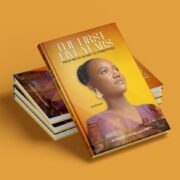Being Robed as a Lawyer Who is a Party to an Action: An Analysis by Moruff Balogun
Lawyard is a legal media and services platform that provides…
On whether legal practitioner who is party to an action can appear in person and remain at Bar fully robed: An insight into the decision of the Court of Appeal (Kano Division) in
BARRISTER A. C. AGU
(Chairman, Umuaka Development Kano Branch)
V.
- MOSES EZENWA .
- HIS WORSHIP FAUZIYA SHESHE
(Magistrate Grade 1, Presiding Magistrate, Court 39 Zungeru Road, No man’s-land, Kano) [2020]10 NWLR PT.1732 PG. 233-241
Courtesy: Moruff O. Balogun Esq.
Summary of facts:
The appellant instituted a suit against the 1ST respondent for recovery of premises and mesne profit. The appellant obtained a default judgment as the 1ST respondent did not appear on the hearing date and the 2ND respondent proceeded to hear the matter and delivered the judgment.
The 1st respondent was dissatisfied with the Judgment. He sought and obtained leave of the High Court of Kano State to apply vide motion on notice by writ of certiorari filed on 28th September, 2015 to quash the proceedings of the 2nd respondent.
In reaction to the motion, the appellant filed a counter-affidavit and a notice of preliminary objection challenging the Jurisdiction of the court to entertain the application on the ground that the application was statute-barred; and that no leave was sought and obtained or, if it was obtained, it was not served on him with the motion.
On 15th December, 2015 the court dismissed the notice of preliminary objection.
The appellant was not satisfied with the dismissal of the preliminary objection and consequently appealed to the Court of Appeal.
He also filed a motion on 8th day of February ,2016 at the trial court for stay of proceedings pending the hearing of the appeal against its ruling dismissing the notice of preliminary objection.
Upon the appeal being entered, the appellant filed another application on 19th April 2016 at the trial court seeking an adjournment of the certiorari proceedings indefinitely for lack of jurisdiction to hear same since the appeal against the ruling of the trial court had been entered or in the alternative, a stay of proceedings in the suit.
On 27th day of April 2016, the trial court struck out the appellant’s motion of 8th day of February 2016, heard the parties on the 1st respondent’s substantive application for certiorari of 28th day of September 2015 and fixed the appellant’s motion of 19th day of April 2016 for hearing after its ruling on the 1st respondent’s application at another date. However, before the adjournment of the proceedings of the day the 1st respondent’s counsel observed that the appellant could not be allowed to come to court fully robed, being a party in the matter citing rule 36 of the Rules of Professional Conduct for legal Practitioners. The trial court invited parties to address it on the issue.
On 28th day of July 2016, the trial court in its ruling held that the appellant could not under the extant law appear for himself robed. The court then proceeded to deliver its ruling on the 1st respondent substantive application, which it granted.
The appellant, being dissatisfied with the two rulings of the trial court, appealed to the Court of Appeal.
On Whether legal practitioner who is party to an action can appear in person and remain at Bar fully robed-
A counsel can appear for himself robed in a matter in which he is a party. It is safe and proper for the
legal practitioner/litigant, who appears in person, to remain at the Bar, fully robed, when taking
motions and legal arguments, thus enjoying the full privilege reserved for a legal practitioner at the Bar including access to facilities like table, law reports and books and the free and conducive atmosphere allowed every counsel, including of the opponent, to address the court. It would not be proper to subject a legal practitioner, who is a party in a suit and opts to appear in person, to any form of indignity, deprivation, intimidation or harassment, simply because he is a litigant and opts to conduct his case by himself, as that would rather put him in disadvantage compared with the opponent’s counsel and erode his privilege of being a member of the legal profession.
The privilege of appearing in person to conduct one’s case does not suggest that he should have any aura of influence or undue influence on the court, as against his opponent or have an extra-legal advantage over and above the opponent, who may not be represented by counsel. It means that he has the opportunity to practice his legal trade or profession, applying the same to his personal benefit, by using his knowledge of law, skill and service to himself and for his personal needs, rather than engaging or paying another counsel to render such services. The legal profession appears to take pride and glory in a lawyer rendering services to himself, as a legal practitioner is considered emotionally stable and professionally sound to counsel and serve himself, just as he serves others, unlike the medical profession which strongly forbids a medical practitioner from prescribing drugs to treat himself or immediate members of his family.
On Judicial immunity of Magistrate-
Where a Magistrate has acted in his capacity as a judicial officer or in his official capacity, he is immuned from prosecution for any action taken by him while sitting as a Magistrate. In the instant case, the 2nd respondent was a nominal party and she was immuned from prosecution having acted as a judicial officer or in him official capacity as a Magistrate.
Courtesy:
MORUFF O. BALOGUN ESQ.
IJEBU ODE,OGUN STATE.
08052871414.
Lawyard is a legal media and services platform that provides enlightenment and access to legal services to members of the public (individuals and businesses) while also availing lawyers of needed information on new trends and resources in various areas of practice.











